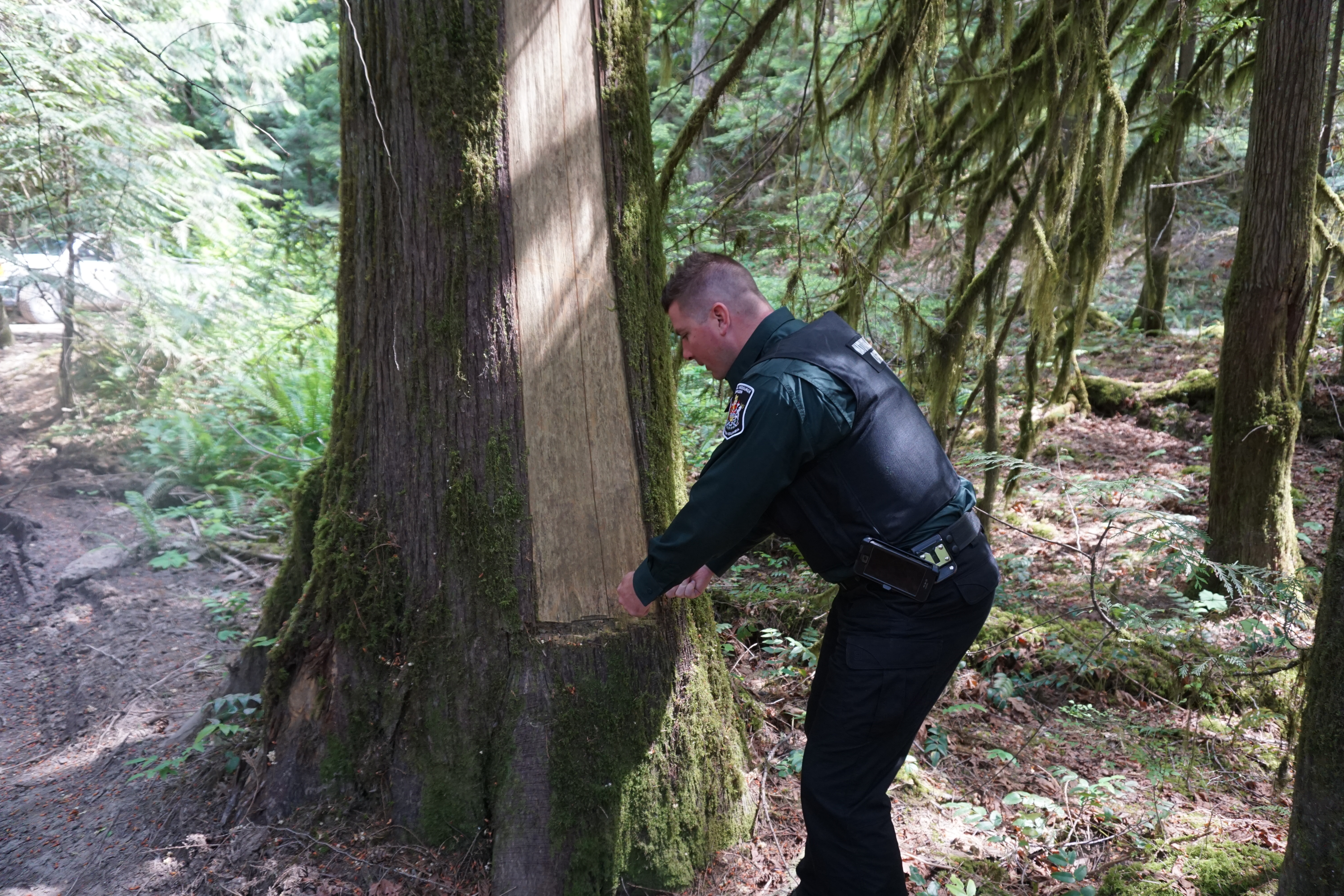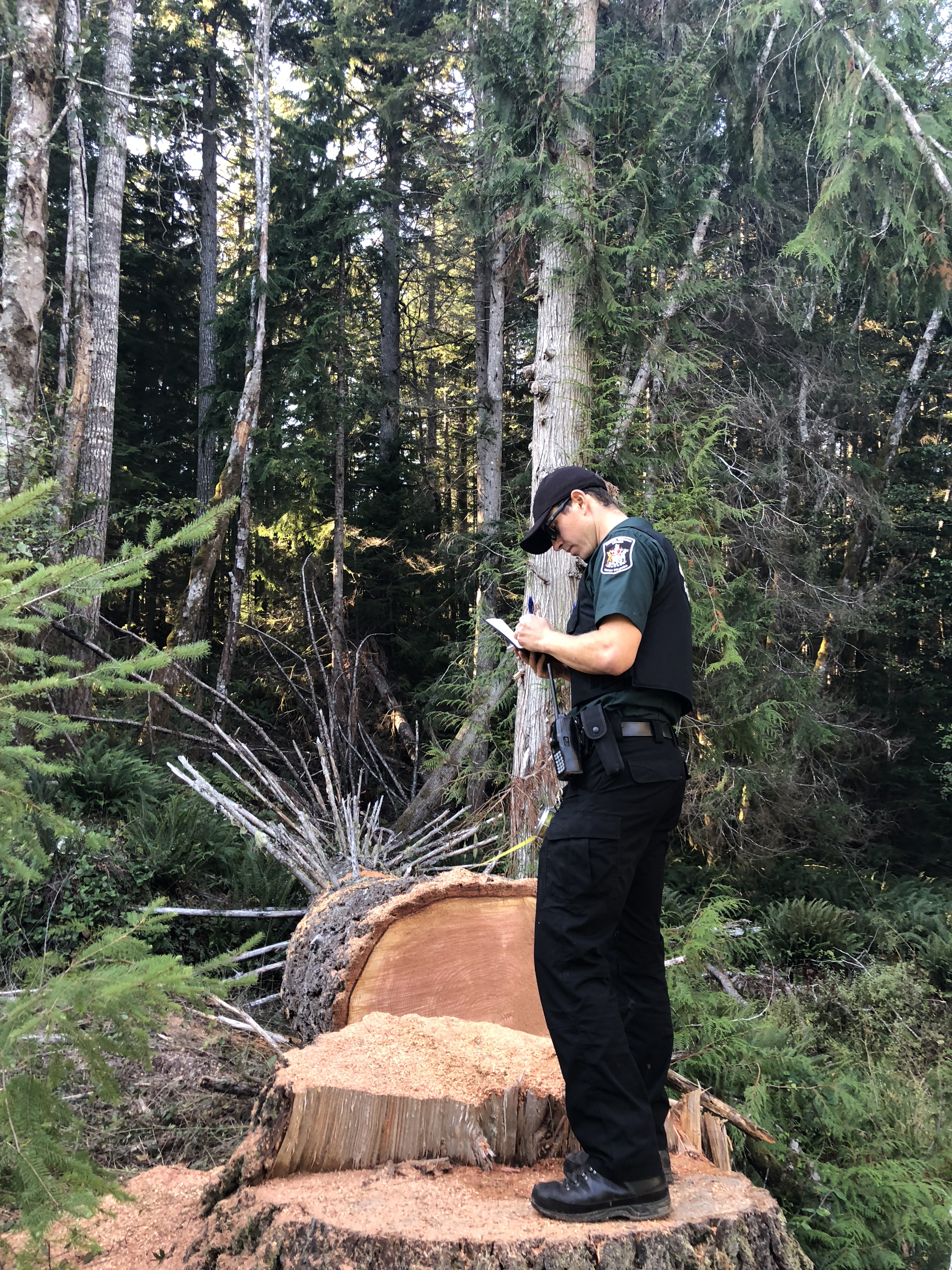Natural resource enforcement
Natural Resource Officers (NROs) have a range of enforcement options available and they can exercise discretion in choosing appropriate enforcement actions. Their decisions often depend on the severity of the situation and take into account the client’s compliance history.
Compliance actions
Compliance actions are used when an NRO has reasonable grounds to believe a contravention has occurred or may be about to occur. Compliance actions are appropriate where enforcement actions are not warranted. They include warning tickets and compliance notices.
Enforcement actions
Enforcement actions are used when an NRO determines that laws have been contravened and a formal sanction is warranted. They include violation tickets, monetary penalties, orders and prosecution. Parties may appeal enforcement actions.
Review enforcement statistics and other enforcement data:
- Compliance and Enforcement Branch Reports and Statistics
- Environmental Enforcement Reports (from the Ministry of Environment's Conservation Officer Service)
Examples of enforcement actions
During compliance inspections, a Natural Resource Officer may use the following actions:
- Written compliance action or warning (a letter or inspection notice)
- Ticket
- Order to vacate a recreation facility
- Trespass notice (to vacate Crown land)
- Seizure of evidence
- Stop Work Order
- Initiate an investigation
Administrative remedy options
If a contravention is found, the Natural Resource Officer can present the information to a designated decision-maker*, who can then schedule an “Opportunity to be Heard” meeting with the client. Once a decision is made, that decision can be appealed to an outside commission for a re-determination.
Possible outcomes
- Administrative remedy (usually a penalty to address cost recovery for the Crown, plus a deterrence penalty)
- Remediation order (to restore a damaged site)
- Suspension of the tenure or licence under which a licensee or client may be operating
- Cancellation of a tenure (the person or company may no longer operate on the site)
Prosecution options
- Violation tickets
- Provincial prosecution (the charge is processed through provincial Crown counsel in the B.C. court system)
Restorative justice options
Restorative justice is a process in which the offender, representatives of the affected community and enforcement staff collectively decide on appropriate restitution or repair of the harm caused by the contravention.
Learn more about different types of enforcement actions.
* A designated decision-maker is typically a senior government official who works independently of the Compliance and Enforcement Branch.
If you witness or are aware of a natural resource violation, see the How to report section on the Report All Poachers and Polluters page.
Violations may relate to the use of fire, water or roads, forestry operations or any misuse of Crown lands.


